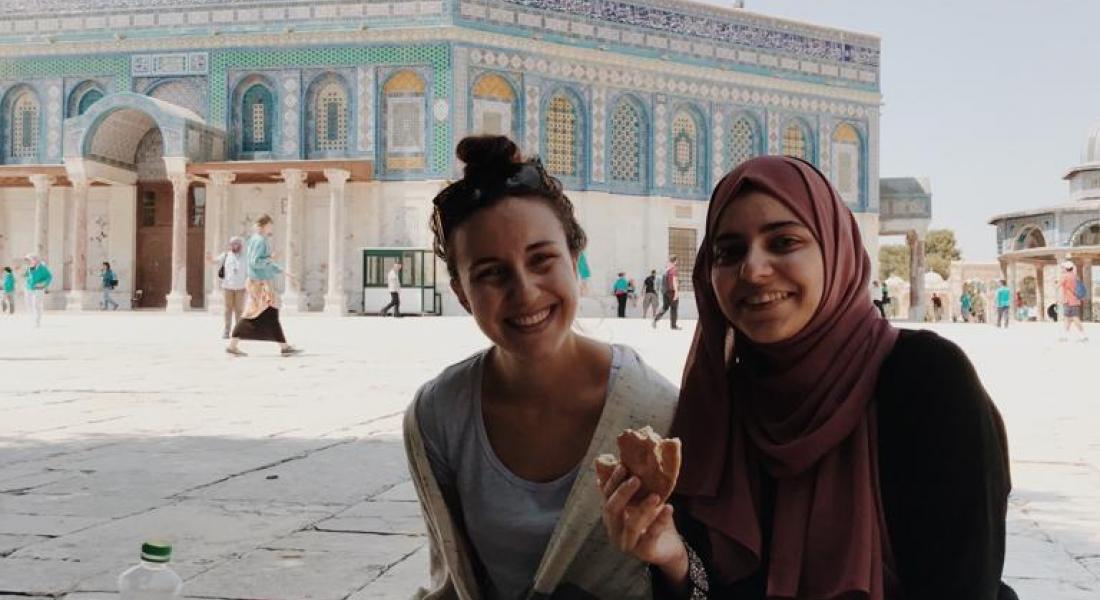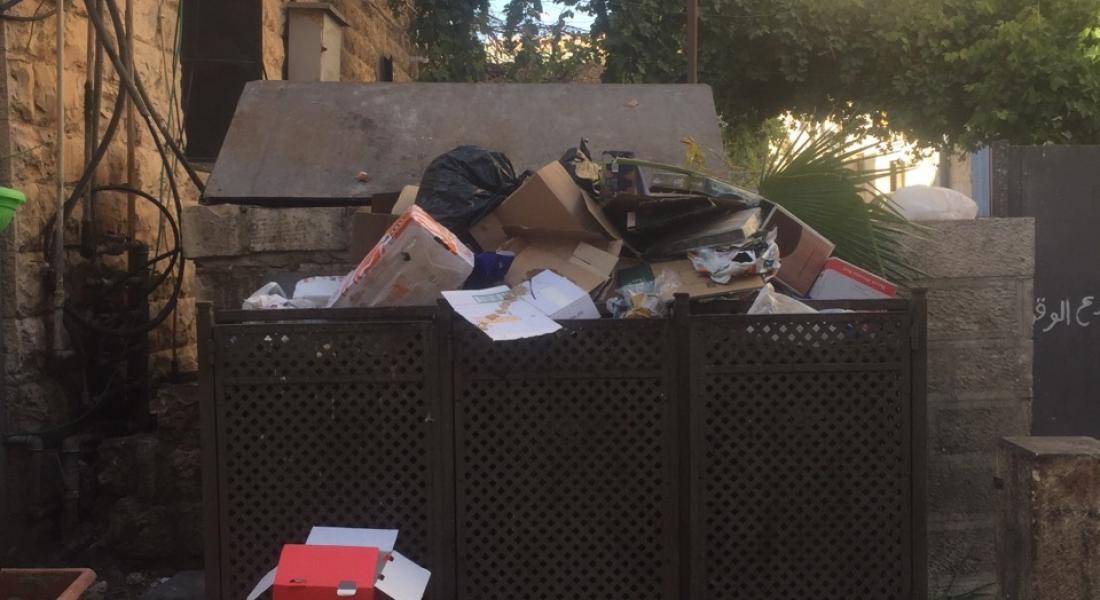During the summer of 2019 Hannah Early Bagdanov spent three months in Israel/Palestine conducting interviews and working on a geospatial mapping project through the support of a Kellogg Institute Graduate Research Grant. In the following report she outlines lessons learned, describes the status of the project, and outlines foreseeable next steps.
Lessons Learned
(1) “Fieldwork Bootcamp”: As most researchers likely experience during their first round of fieldwork, I felt as though these first three months were akin to enrollment in a “fieldwork bootcamp” where I was thrown into the deep-end and quickly learned many of the quirks and ins and outs of data collection in the field. Many times throughout the three month period I reflected that I was lucky to work out some of the kinks well before I collect data for my dissertation. For example, I was able to identify a translator who could be an incredibly useful resource should I conduct fieldwork in Israel/Palestine for my dissertation. Likewise, I learned that for subsequent projects, I could apply to be a doctoral affiliate at the Hebrew University of Jerusalem. This would provide me with in-country institutional backing and increase my ability to conduct research on politically sensitive topics. Additionally, in making connections with researchers and NGOs in the area, I was able to identify future interviewees and develop a better understanding of the relevant networks. This list just scratches the surface of all of the practical skills and pieces of information I gained in this three month period, and I am grateful to have been given the opportunity to work through some of these lessons early on.
(2) The Importance of Question Formulation and Framing: In conducting interviews I learned the importance of question sequencing and framing in an effort to extract information of interest. In my first few interviews I was fortunate enough to speak with academics who advised me on how to structure my questions in order to get the most out of the interview period. Going forward, I plan to review my questions with local experts prior to using them in an interview. Additionally, at various points I found that certain phenomena that I found to be relevant was of little interest to interviewees (which meant that it was difficult to get interviewees to discuss the topic). For future projects I want to think further about how to handle this type of issue.
Project Components
(1) Mapping: As planned, I used ArcGIS mapping software to plot public goods and service providers in the Jerusalem Area. At the municipal level, I mapped hospitals, community centers, schools, community gardens, and other municipally provided resources by neighborhood. I then conducted a more fine-grained analysis of trash collection and street cleanliness in one neighborhood that is ethnically segregated.
(2) Interviews: In the project period I conducted roughly 15 interviews with local academics, NGOs, and government officials. These interviews were helpful as a supplement to the mapping data that could be of use in an article length piece. If I were to turn this project into a dissertation, I would like to conduct more interviews in a more systematic fashion so that they could constitute a chapter-length case study.
(3) Miscellaneous Data: I was able to secure budget information for Palestinian Authority involvement in Jerusalem over the past 15 years.
(4) Secondary Project Idea: During an interview with a local organization I had the idea for a second project on a related but separate topic. I have started this project and will work on both in tandem. I plan to cite the Kellogg Institute in all published materials for this project as well.
Project Next Steps
(1) GIS Data Cleaning: I am currently working on cleaning the data I collected the using ArcGIS software with help from the Center for Social Science Research. I will use the data to write an article-length piece that I am working on in one of my classes.
(2) Meetings with Advisors: I am trying to meet with various professors this semester and next to discuss what I found and discuss next steps for the project. Importantly, I am seeking advice on whether I should try to turn this project into a dissertation or to pursue a different project.
Conclusion
I am grateful to have been given the opportunity to get started on field research so early on in my program through my receipt of the Kellogg Graduate Student Research Grant. This grant not only allowed me to “get my feet wet” with the process of conducting fieldwork, but also allowed me to collect enough data for at least one article and sparked the idea for another project. In the coming months, I am hoping to come to a conclusion about whether or not I will pursue this project as a dissertation. Either way, I am grateful to the Kellogg Institute for this opportunity and for the ways that it has encouraged the development of my research.







